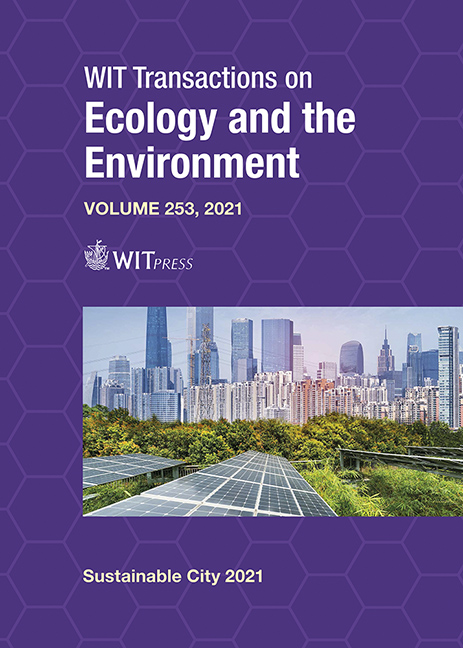PROPOSAL FOR THE MANAGEMENT OF SOLID WASTE GENERATED IN A UNIVERSITY CAMPUS: A CASE STUDY
Price
Free (open access)
Transaction
Volume
253
Pages
12
Page Range
593 - 604
Published
2021
Size
986 kb
Paper DOI
10.2495/SC210481
Copyright
Author(s)
BETHY MERCHÁN-SANMARTIN, PATRICIA N. ALMEIDA, MAYRA BROCEL, BRYAN R. PINTO, KAREN CÓRDOVA, ANTHONY MULLO, PAÚL CARRIÓN-MERO, EDGAR BERREZUETA
Abstract
Sustainable development goals 3, 6, 7, 9, 11, 12, 13, 14, and 15, promoted by the United Nations, address the issue of waste management as a basis for preserving ecosystems. This paper states the management of recyclable and non-recyclable solid waste generated by 19,032 people on the university campus of the Escuela Superior Politécnica del Litoral (ESPOL) in Ecuador. The objective of this study is to present proposals for the integral management of solid waste in ESPOL, based on the estimation of per capita production (PCP in kg/hab-day). The applied methodology was: (i) revision of the Ecuadorian legal and technical regulations applicable to the Guayaquil canton on solid waste management; (ii) analysis of the current status of ESPOL and characterization of solid waste; (iii) projection of the population growth of the university and estimation of the PCP of residues; (iv) development of proposals for the collection, handling, processing, transformation, transport and final disposal of recyclable and non-recyclable solid waste; (v) presentation of solid waste management proposals. According to the result, the production of solid waste in ESPOL reaches 780.31 kg/day (28,481 ton/year); the classification and quantification of waste indicate that 61.82% is organic, followed by plastic with 18.79% and paper with 13.05%, the remaining 6.34% is metal, glass, tetra pack, electronics, and other types. Among the proposals for the management and use of waste includes capacitation for people who work at the campus and the continuous disclosure to the students. To advance towards the goal of zero waste and circular economy, first, it is necessary to achieve the sustainable environmental culture of the entire polytechnic community.
Keywords
Proposals, Management, solid waste, recyclable, sustainability





